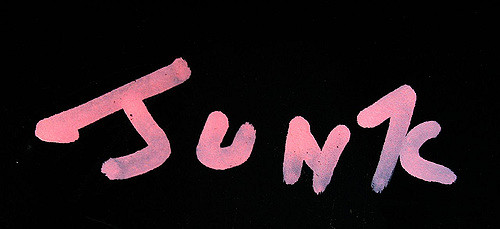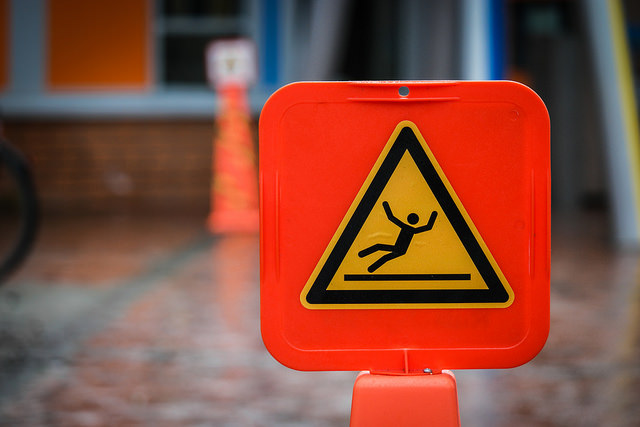This week in Phispers, we look at the contrasting 2017 forecasts of Mylan and Teva, resulting from the FDA approval of Mylan’s generic Copaxone. Valeant decides to return the female libido pill business to Sprout Pharma. In India, two Lupin facilities receive FDA warning letters. And Torrent Pharma’s imminent acquisition of Unichem is set to make it the country’s fifth largest drug company. Meanwhile, Pfizer admits to have faltered on integrating Hospira and QuintilesIMS rebrands itself as IQVIA.
Teva’s credit rating nosedives, as Mylan raises 2017 forecast with approval of Copaxone
Here’s the tale of two drug makers — Teva Pharmaceutical Industries
and Mylan NV. Both have been facing tough times — Teva due to the declining prices of drugs and the high debt it incurred due to its US$ 40 billion acquisition of Allergan Plc’s generics business last
year; and Mylan due to its struggles with its blockbuster emergency allergy
shot EpiPen.
But
last week clearly favored Mylan. Teva saw its credit rating cut to junk by Fitch Ratings after the US Food and Drug Administration (FDA) approved two doses of Mylan’s generic version of Teva’s Copaxone. This multiple sclerosis drug happens to be Teva’s biggest product. As a result, Teva slashed its 2017 profit forecast for a third time.
Fitch
predicted that Teva will have to either sell assets or find external sources of
financing to meet its obligations. Mylan, on the other hand, raised its 2017 forecast as it expects to benefit from the ‘earlier-than-expected approval’ of its generic Copaxone.
Even
as Mylan hopes to benefit from its generic Copaxone, its challenges
continue unabated. Its third-quarter results highlighted the company's struggles with
declining sales of EpiPen. Sales of EpiPen fell by US$ 245.1 million on increased
competition and higher governmental rebates following a settlement with the US
Department of Justice.
EpiPens,
which contain the hormone epinephrine, are used to stave off allergic
reactions that can be fatal. However, since mid-September this year, seven
people have died as a result of failure of EpiPens to deploy correctly. In all, the FDA has
received 228 reports of EpiPen or EpiPen Jr failures since mid-September.
Teva’s JV with Guangzhou:
Meanwhile, Teva is exploring growth through the world’s second-largest market for drugs — China. It is setting
up a joint venture with Guangzhou Pharmaceutical Holdings
to manufacture and sell its drugs in the Chinese market. It is awaiting
approval from the local government.
Two years after buying ‘female-Viagra’, Valeant plans to sell it back to Sprout
After
buying the female libido pill business from Sprout Pharmaceuticals two years
back for US$ 1 billion, this week Valeant Pharmaceuticals International
said it plans to sell the business back to its original
owner.
The controversial pink pill — Addyi — made by Sprout was said to be a blockbuster drug, expected to command a US$ 2 billion market. However, Addyi proved to be a commercial disaster, with its sales being sluggish last year. What was worse, Valeant was sued on behalf of the former Sprout investors for
its alleged failure to market Addyi successfully. The complaint had said that
sales of the pill may have totaled less than US$ 10 million in 2016, far short
of the US$ 1 billion targeted by July, 2017.
Addyi, approved by the US FDA in August 2015 under intense pressure from patient advocacy groups, is meant to be taken daily. It is prescribed to activate sexual impulses, but carries a strong warning about its potential side effects — such as low blood pressure and fainting, especially when taken with alcohol. Many in the industry believe that the drug should never have been approved.
Valeant has agreed to sell its subsidiary and Addyi to a new company “associated” with Sprout’s founders, for a royalty stream of only 6 percent on global sales of Addyi. In addition, Valeant said it will provide a US$ 25 million loan to fund initial operating expenses to the new company to get things started. And in exchange, Sprout is dropping its lawsuit claiming Valeant mismanaged the launch by pricing the drug too high.
Valeant’s glaucoma drug:
Last week, the US FDA approved Valeant’s long-delayed glaucoma drug — latanoprostene bunod ophthalmic solution.
Christened Vyzulta, the solution was approved for the reduction of
intraocular pressure (IOP) in patients with open-angle glaucoma. Valeant hopes
to have the drug in the market before 2017-end, Joseph Papa, CEO of Valeant,
said in a statement.
Valeant
acquired the drug through its US$ 8.7 billion buyout of Bausch + Lomb in 2013. The drug was
licensed to Bausch + Lomb by France-based Nicox.
Torrent to emerge fifth-largest Indian drug player after
Unichem buyout
In
India, Ahmedabad-headquartered Torrent Pharmaceuticals plans to acquire Unichem Laboratories’ domestic business for US$ 558 million (Rs 36 billion) by the end of this week.
The
deal would make Torrent the fifth largest player in the Indian market with
a market share of 3.4 percent. According to a Reuters report, Torrent
would buy more than 120 brands from Unichem in India and Nepal,
along with its manufacturing plant in Sikkim.
The
board of Torrent is meeting on November 10 to approve the second quarter
results. A formal announcement on the acquisition of Unichem is likely to come on
that day.
Unichem has not been able to leverage its slow-growing, mature brands. The deal includes the purchase of the brands like Unienzyme, Losar, Ampoxin and Telsar.
The
acquisition is likely to deliver synergies in both cost and revenues for Torrent’s branded drugs business in India. Torrent is expected to turnaround Unichem’s mature brand, just the way it had turned around Elder Pharma’s branded formulations,
which it had acquired in 2014 for US$ 308 million (Rs 20 billion).
Analysts expect Unichem to use the proceeds from the deal to ramp up its unprofitable international business. The transaction will strengthen Torrent’s position in cardiology, diabetology, gastro-intestinals and central nervous systems therapies, Torrent chairman Samir Mehta said.
Despite record profits, Pfizer’s CEO says troubles with Hospira persist
American pharmaceutical giant Pfizer reported third-quarter profits
last week, which more than doubled as its new drugs to treat cancer and other
illnesses made up for the hit the company took due to patent expirations.
Pfizer’s net income from the
quarter stood at US$ 2.8 billion, compared with just under US$ 1.4 billion in
the year-ago period.
However, Pfizer’s Essential Health unit remained an area of concern, into which Hospira was folded. The third quarter
revenue of this unit was down 11 percent, at US$ 5.06 billion. Pfizer had
acquired Hospira in 2015 for US$ 15
billion.
While praising other parts of the Essential Health unit (such as biosimilars and emerging markets), Pfizer CEO Ian Read pointed his finger at Hospira. “Within our Essential Health portfolio, we have been experiencing supply shortages with some products. The shortages are primarily for products from the legacy Hospira portfolio and are largely driven by capacity constraints and technical issues,” Read said.
Pfizer
has attributed a 12 percent operational decline from its sterile injectable products on “capacity constraints and technical issues” stemming from the former Hospira facilities.
At
the time of acquisition, the sterile injectables player Hospira was facing
regulatory challenges. The executives of Pfizer had assured
investors and regulators that they would quickly resolve issues at
the plants. However, two years on, the problems still persist.
Pfizer has sold or closed some of the troubled operations of Hospira. But one that has continued to bother the company is a facility in McPherson, Kansas. Earlier this year, Pfizer’s fill/finish manufacturing facility in McPherson received a warning letter from the US FDA. The manufacturing problems at the McPherson plant also derailed the launch of a generic version of Teva’s Copaxone, that was being developed by Sandoz and Momenta. The drug
was being finished at the McPherson plant, which was slapped the FDA warning
letter.
Goodbye
QuintilesIMS, Hello IQVIA
QuintilesIMS has rebranded itself and changed its name to IQVIA. Last year, Quintiles and IMS Health had merged. The merged entity — QuintilesIMS — had emerged as the world's largest pharma services provider, with a market value of almost US$ 18 billion and around 50,000 employees.
The name change (to IQVIA) is effective from November 6, 2017; and beginning November 15, 2017, equity shares of the company will trade on the New York Stock Exchange (NYSE) under the new name and new ticker symbol ‘IQV’.
“IQVIA may be grounded in the intelligence and capabilities of I and Q, but it is ‘via’ the path forward that we hope to inspire and ignite real change for healthcare stakeholders,” a spokesperson told Endpoints News.
Two Lupin facilities receive FDA warning letters
In another setback to Indian generic manufacturers trying to
overcome concerns of non-compliance with good manufacturing practices (GMPs),
Lupin informed the bourses that it had received a warning
letter for its formulation manufacturing facilities in Goa
and Indore (Pithampur Unit II).
In April 2017, Lupin had received three Form 483 observations for its Goa facility, and a month later six Form 483 observations for Pithampur.
In June last year, a PharmaCompass article had asked the question — “Lupin’s FDA inspections, how serious are the concerns?”. In our review of FDA observations of previous inspections at Lupin, we had highlighted concerns over “instances where batches that generated ‘out of specification (OOS)’ results and failed in-process specifications, had the finished product released by the quality control unit (QCU) and distributed” without invalidating the OOS results.
The recent warning letters indicate continued
concerns at Lupin.
The observations of the recent inspections specifically highlight Lupin’s continued “failure to thoroughly review any unexplained discrepancy” as Lupin invalidated approximately 96 percent of all OOS results obtained at Pithampur and over 75 percent of them in Goa.
While Lupin does not expect any disruption
in supplies, the company does anticipate a delay of new product approvals.
Impressions: 3809
This week, Phispers has lots on generics. While the global leader Teva has more troubles at hand, generic players in the US face fresh lawsuits, and Sanofi plans to sell its European generic unit. There is also talk of Novartis buying America’s generic-drugs maker Amneal. In other news, oncologists find problem with clinical trials, and China shuts plants to curb pollution
Teva braces declining sales, lawsuits
and closure of its Mexico plant
There is more bad news from Israel’s Teva Pharmaceutical Industries. First, its Rimsa plant in Mexico is said to be shut, and a lot of employees have been (reportedly) laid off. As per a news report, it’s difficult to make the Rimsa
plant operational anytime soon.
Teva had invested US $ 2.3 billion in the facility. There are reports that the company may
make a write-down on its investment in Rimsa. In September, the global leader
in generics had claimed that the Espinosa brothers, who had controlled Rimsa
until its sale to Teva, had deceived the regulatory authorities and patients
for years and sold defective and illegal drugs.
Teva’s troubles don’t end there. The company is also setting aside US $ 520 million in its bid to settle allegations of paying bribes in Russia, Mexico and Ukraine. In its latest earnings report released Tuesday, Teva noted that “advanced discussions” are under way with the federal courts in the US to resolve the incidents, which took place between 2007 and 2013.
Teva has
completed 12 acquisitions worth US $ 46 billion in the last four years. Teva’s blockbuster Copaxone,
which brings in 19 percent of its overall sales, has lost several patent
challenges in the US and is likely to face generic competition early next year,
putting more than US $ 4 billion in sales at risk. Even without a generic
competitor, sales declined 2.2 percent year-on-year in the third quarter this
year.
To control
pollution, north China industrial hub curbs drug production
If you live in Delhi, and are coping with the hazardous pollution levels, here’s something that will interest you. A wide-ranging ban has
been imposed in a northern Chinese industrial hub on production at drug plants,
steel mills and other businesses.
This is a
last-ditch attempt by the government of Shijiazhuang city to meet this year’s pollution control target — to reduce the levels of PM 2.5 (fine particles that pose a risk to human health) by 10 percent. Shijiazhuang is the capital of the northern Hebei province, which reported economic growth of 6.8 percent in the first three quarters of this year.
Last week,
the government of Shijiazhuang city said for the remaining 45 days of the year,
it will curb output at thermal power plants, halt all production at industries
such as steel and cement, and limit manufacturing of pharmaceuticals, chemicals
and even furniture.
In 2014,
President Xi Jinping had responded to public outrage over high smog levels. As
a result, local officials are trying hard to strike a balance between pollution
control and economic growth.
Shijiazhuang
is home to major active pharmaceutical ingredient (API) producers such as North China Pharmaceutical, CSPC Zhongnuo Pharmaceutical, CSPC Ouyi Pharmaceutical and many others. These companies are critical to the
global antibiotic supply chain as they provide the building blocks for
antibiotic manufacturing, such as 6-APA and 7-ACA, along with commonly used
antibiotics such as Penicillin, Amoxicillin, Amipicillin and Azithromycin.
PharmaCompass has been routinely
covering the Chinese bulk drug industry and its impact on the environment. In April this year, PharmaCompass
had reported how school children in China were wearing gas masks due to pollution concerns. And prior to that, we had
carried an article on how dependent the world has become on bulk drugs from China.
More trouble
for generic drug-makers in the US as unions file lawsuits
In a fresh
salvo at the generic drug industry, a union representing sergeants of the New
York Police Department is attempting to hit some companies with civil penalties. The generic industry is already facing charges from a
two-year US Justice Department antitrust probe.
The union
has filed two lawsuits against two groups of drug-makers, which includes Novartis AG’s generic drug unit, Ireland-based Perrigo Co., India’s Wockhardt and Taro Pharmaceutical Industries (Israeli subsidiary of India’s Sun Pharma). The union has alleged that the companies colluded to
raise prices of two dermatological creams by as much as 1,000 percent since
2013.
Besides
this, at least four other unions
have filed lawsuits of their own, with two of them adding Actavis Inc., acquired in August by Teva, to the list of
defendants. All the unions manage health benefits for their members. The
unions say they overpaid for the drugs due to the price collusion. They point
to data that the drug-makers took price hikes on certain medicines by nearly
the same amounts within months of each other.
A lawyer for
the New York sergeants’ union said he expects a judge will call a conference in December
to decide if the cases can be combined.
Novartis may
buy generic drug-maker Amneal for US $ 8 billion
Swiss
healthcare major Novartis AG is in talks to acquire American generic-drugs maker Amneal Pharmaceuticals. Through this acquisition, Novartis plans to strengthen
its Sandoz
business. According to Bloomberg, Novartis and Amneal may reach an agreement soon. Amneal
makes the antiviral acyclovir (to treat herpes) and gabapentin (for epilepsy and pain). The
acquisition could cost Novartis around US $ 8 billion. Amneal is a family-owned
business led by co-founders Chintu and Chirag Patel and has operations in North
America, Australia, Europe and Asia. Its portfolio of generic treatments
includes around 115 approved molecules in the US.
Sanofi to
sell off European generic drug unit
French drug
maker Sanofi
confirmed it has decided to sell off its generic drug unit in Europe. The decision will affect two
manufacturing plants in the Czech Republic and Romania.
Sanofi CEO Olivier Brandicourt recently informed investors that the company has “made a definitive decision to initiate a carve-out process and divest the generics portfolio in Europe.” The move is part of the company’s 2020 strategic roadmap. He, however, did not provide details.
Sanofi had
acquired Zentiva, a Czech generic business, in 2008 for US $ 2.6 billion. And Sanofi’s generic business is centered around this acquisition. The business is particularly strong in the Czech Republic, Romania and Turkey.
On Monday, Zentiva Romania informed
the Bucharest Stock Exchange that its majority shareholder Sanofi has decided
to sell its Romanian generic drug plant as part of a major divestment plan of
its EU generic drugs business.
A company spokesperson said the planned scope of the divestment is the generics business “related to Europe,” so it excludes Russia, the Commonwealth of Independent States (CIS) and Turkey. And it includes the two “dedicated manufacturing sites producing and distributing generics for the European market,” one in Prague (Czech Republic), and the other in Bucharest (Romania).
Former
Valeant executives arrested for fraud
Last week,
two former executives of Valeant Pharmaceuticals — Gary Tanner and Andrew Davenport, who had been the CEO of Philidor — were arrested on charges of running a fraud scheme that swindled millions of dollars out of Valeant. The fraud was allegedly conducted with the help of a mail-order pharmacy, that is now defunct.
According to
Preet Bharara, US Attorney for the Southern District of New York, the arrests
were part of an ongoing probe of the scheme.
The criminal
complaint alleges that Tanner and Davenport conspired to enrich themselves with
Valeant funds. The two helped Valeant set up Philidor in early 2013, which was primarily a vehicle to market and distribute
Valeant drugs.
According to
the complaint, Tanner focused on building Philidor’s business, resisted his superiors’ directives to line up other distributors for Valeant’s products and ultimately received a US $10 million kickback from Davenport.
The complaint alleges that in 2014, the two orchestrated Valeant’s agreement to buy an option to purchase Philidor, which cost Valeant at least US $ 133 million. More than US $ 40 million of that went to shell companies controlled by Davenport. One such shell company — called ‘End Game LP — gave a kickback of US $10 million to Tanner.
Homeopathy
products in the US may carry caveats soon
In a report on homeopathic advertising, the Federal Trade Commission (FTC) in the US said that homeopathic drugs should “be held to the same truth-in-advertising standards as other products claiming health benefits.”
Only the US
Food and Drug Administration (FDA) can prevent homeopathic marketers from
selling their products. The FTC has no teeth in the matter.
But very soon, homeopathic products could include statements such as ‘there is no scientific evidence backing homeopathic health claims’ and ‘homeopathic claims are based only on theories from the 1700s that are not accepted by modern medical experts.’
However, this may not affect sales of homeopathic products. There are claims that such statements could backfire because homeopaths and those who believe in homoeopathy don’t trust modern medicine. They could also believe that if
homeopathy has been around for that long, it must work.
This is not the first-time homeopathic medicines would carry caveats. In 1988, the FDA had struck a deal where it agreed that homeopaths could be self-regulating, if they include a disclaimer that their claims haven’t been evaluated by the FDA.
In February
this year, PharmaCompass had carried a news nugget on Professor
Paul Glasziou, a leading academic in evidence-based medicine at Bond
University, who had declared homeopathy as a “therapeutic dead-end”
after a systematic review concluded the controversial treatment was no more
effective than placebo drugs.
Cancer
clinical trials exaggerate benefits of new drugs, say oncologists
Two cancer physicians argue that large clinical trials — required for approval of new cancer drugs in the US — often overstate the effectiveness of the treatment in the real world.
During
cancer clinical trials, some volunteers take the experimental drug, while
others receive standard care with existing drugs. The groups are then compared
to see if their tumors have shrunk, how long it takes for the tumors to return,
and how long do the patients survive. This way, the trial sees whether the
experimental drug is safe and effective and can be sold to patients in the US.
The process
is based on the premise that trials give an accurate indication of safety
and efficacy among cancer patients in general, and not only those who are
eligible for and selected for the trial.
The trouble
is, participants in clinical trials are unlike the overall cancer population,
point out oncologists Dr. Sham Mailankody of Memorial Sloan Kettering Cancer
Center and Dr. Vinay Prasad of the Oregon Health and Science University in JAMA
Oncology. They’re younger, healthier, wealthier, better plugged in to the healthcare system, and better educated.
According to
these oncologists, if cancer patients are similar in age, socio-economic
status, have presence of other (similar) illnesses, and other
characteristics as those in a clinical trial, they might do as well. But for
everyone else, the trial results probably promise more than the drug can
deliver.
Impressions: 4478
With Novartis shutting two plants in Germany and one in India by 2016-end, the global reliance on China for bulk drugs has increased even further, raising serious concerns over safety, supplies and national security. Which
plants? Last week, Novartis announced it will be shutting three plants of its generic business – Sandoz – by the end of 2016. The first plant is in India and the other two are located in Germany, in Gerlingen and Frankfurt. Frankfurt,
manufacturer of a key antibiotic intermediateThe Frankfurt plant is where Sandoz manufactures
7-ACA
(7-aminocephalosporanic acid), the core chemical structure (building block)
for producing a whole host of cephalosporin antibiotics. The reason given for closure -- prices of the cephalosporin active pharmaceutical ingredients (APIs) and intermediates have collapsed as Asian competitors have dumped excess capacity on the market. The shutdown of the Frankfurt facility
means that the global reliance on China for APIs, used to produce antibiotics
(such as cephalosporin) and especially
7-ACA, will increase only further. Chinese
APIs are already a security threat for India India produces a third of the world's
medicines, mostly in the form of generic drugs. However, according to an Oct 2014 report
by a Boston Consulting Group (BCG) and Confederation of Indian Industry (CII), more
than 90 percent of the key raw materials (intermediates and APIs) that go into
making at least 15-odd essential drugs come from China.The drugs listed include the most commonly used painkiller such as paracetamol, aspirin; antibiotics such as amoxicillin and ampicillin, cephalexin, cefaclor, ciprofloxacin, ofloxacin, levofloxacin; first line diabetes drug metformin; and antacid ranitidine. There are no domestic producers left for many drugs such as penicillin-G, and its derivative 6-aminopenicillanic acid, or 6-APA.Since India is still receiving a large quantity of 7-ACA from Germany (confirmed by the import statistics available on the PharmaCompass database), 7-ACA and its derivatives were not mentioned in this report.As per news reports, the Indian government
is now worried about over-dependence on imports from China. "Any
deterioration in relationship with China can potentially result in severe
shortages in the supply of essential drugs to the country. Additionally, China
could easily increase prices of some of these drugs where it enjoys virtual
monopoly," said Bart Janssens, partner, BCG, in a news
report published in The Economic Times. Recognizing the national healthcare
security challenge facing India, the Department of Pharmaceuticals (DoP) has
decided to declare the year 2015 as ‘Year of Active Pharmaceutical Ingredients.’ As part of this initiative, the Indian government intends
to build
cluster parks to boost India’s self-reliance on Chinese imports. Quality,
environmental concerns over Chinese AntibioticsChinese supplies of 7-ACA have been plagued
with multiple issues in the past. In 2012, for instance, several Chinese drug
companies were accused of manufacturing 7-ACA using contaminated ‘gutter oil’, instead of more
expensive soybean oil. Gutter oil is reprocessed oil manufactured from waste oil and animal fat collected from restaurants’ fryers, drains, grease traps and slaughterhouses. Chinese restaurants can get through a lot of cooking oil and this waste oil fuels a highly profitable gutter oil black market as there are few other outlets, such as biofuel production, for this by-product.Similarly, antibiotic pollution in the rivers of China is a serious cause of concern for the Chinese. Our previous analysis, “Antibiotic
resistant superbugs: deadlier than cancer and closer to you than you think” provides a detailed overview regarding the challenge being faced. However, with growing focus on antibiotic pollution in China, a shutdown of factories failing pollution norms would be a severe setback for the global antibiotic supply chain. In addition to these challenges, quality concerns have been raised during international regulatory inspections of some of the leading antibiotic producers in China, like Zhuhai
United and North
China Pharmaceutical Company. South
African stock outs of essential drugs a global concernThe outcomes of these challenges are already being felt in countries such as South Africa which are facing an acute shortage of critical drugs. According to a report
published in Groundup, drug shortages in South Africa’s health facilities have become a crisis. The story mentioned the situation in a hospital (Stanger Hospital) in Ilembe District KwaZulu Natal, where 200 products were out of stock. These included various doses of morphine, some antibiotics and antiretrovirals, especially paediatric ones, used to treat HIV. “About a hundred patients per week are going without ranitidine which prevents stomach ulcers. Several Ilembe facilities are even out of stock of paracetamol tablets,” the Groundup report said. There are multiple reasons for the drug stock
outs. However, unprofitability because old, off-patent products are being sold by
manufacturers at prices very close to the cost of production has played a major
role. Firms are abandoning such products and seeking higher return
alternatives. In addition, due to quality failures suppliers are unable to provide lifesaving medications to the South African population. Our
ViewThe problems of stock outs and quality concerns in South Africa can easily expand across the world and can’t be addressed until the global pharmaceutical industry reduces its reliance on China for bulk drugs and intermediates. It remains to be seen if the threat to the global supply chain will make Novartis reconsider its decision or drive a national government to buy the Frankfurt facility.
Impressions: 7491















